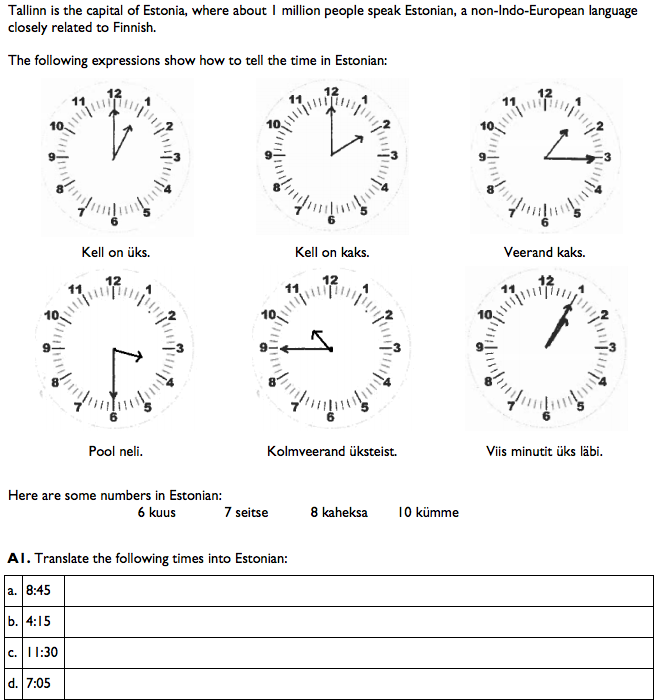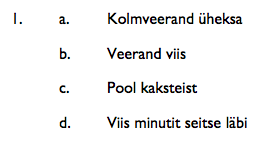Calling All Young Linguists!: Get Ready for the International Linguistic Olympiad
Table of Contents
Kenneth Lu/Flickr
Interested in word games and logic puzzles? Check out the International Linguistics Olympiad, a competition where young linguists from around the world solve challenging linguistics puzzles.
The International Linguistics Olympiad, a competition for secondary school-aged students, first started in 2003. The competition challenges both individuals and teams to solve linguistic puzzles. The United Kingdom sends teams to the contest every year: we compete against teams from Australia, Russia, Pakistan, the United States, and other countries.
According to the IOL’s history page, Alfred Zhurinsky, a Russian philologist, initiated the first linguistic Olympiad for Russian secondary school students in 1965, when he was a fifth-year linguistics student.
A similar competition has been taking place in Bulgaria since 1982, and competitions have also cropped up in the Netherlands and the United States. When teams from Moscow and Bulgaria successfully competed against each other in recent years, the idea of an international competition blossomed.
The first official International Linguistics Olympiad was hosted in Borovets, Bulgaria. Six countries participated, represented by thirty-three secondary school students and nine teams. This past summer, 152 students in 39 teams from 28 countries competed against each other in Beijing.
Even though students from all over the world participate in the competition, everyone competes in the language of their choice. This means that foreign language skills aren’t a prerequisite to participation. The IOL’s Problem Committee puts together multilingual problems, or problems that have the same meaning even when they are written in different languages.
The organisers of the IOL believe that linguistic research is “one of the foremost ways of learning about mankind.” The competition aims to promote linguistic diversity in an “age of global communication,” helping turn students into global citizens.
Unfortunately, linguistics is not well represented in secondary schools. By offering an extracurricular opportunity to examine linguistic challenges, promote linguistic diversity, and foster logical thinking skills, the IOL makes up for this problem.
Linguistic Puzzles
So, what are some samples of linguistic puzzles?
Here’s an example of an easy question:
You don’t need to know Greek to answer the question. I’ll give you a hint to start you off: when I worked on this problem, I noticed that “master(s)” is used four times in the English phrases, while other nouns are only used twice. In the Greek, words starting with “cyri-” also occur four times. They come in four forms, “cyrioi,” “cyriu,” “cyrios,” and “cyrion.”
In English, there is only “master” and “masters.” Because there are four forms of the Greek word “cyri-,” this means that there must be different spellings for not only the word’s singular and plural forms, but its possessive and object forms. I think that’s enough to get you on the right path.
Was that too easy for you? Try our Modern Greek Level Test to see how you're doing.
Here is one more sample problem and solution from the NACLO website:
The International Linguistic Olympiad is looking to connect with teachers and students, and is growing its presence by venturing into social media. If you want to get connected, you can read the ILO blog, friend them on Facebook, follow their Tumblr, and re-tweet them on Twitter.
If you’re interested in getting involved with the 2015 competition, you can find out on the ILO site. The United Kingdom Linguistics Olympiad will determine the team representing the UK. With the right training, preparation, and passion, you could be on your way to victory!





